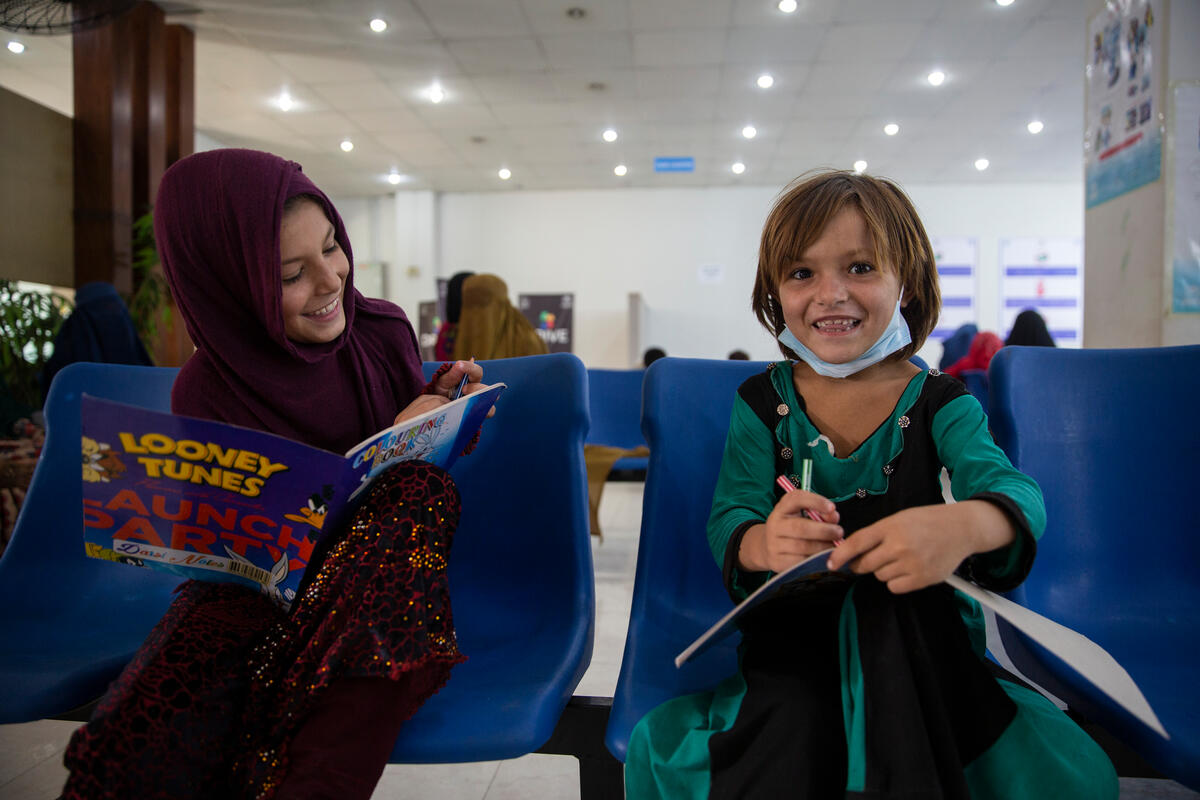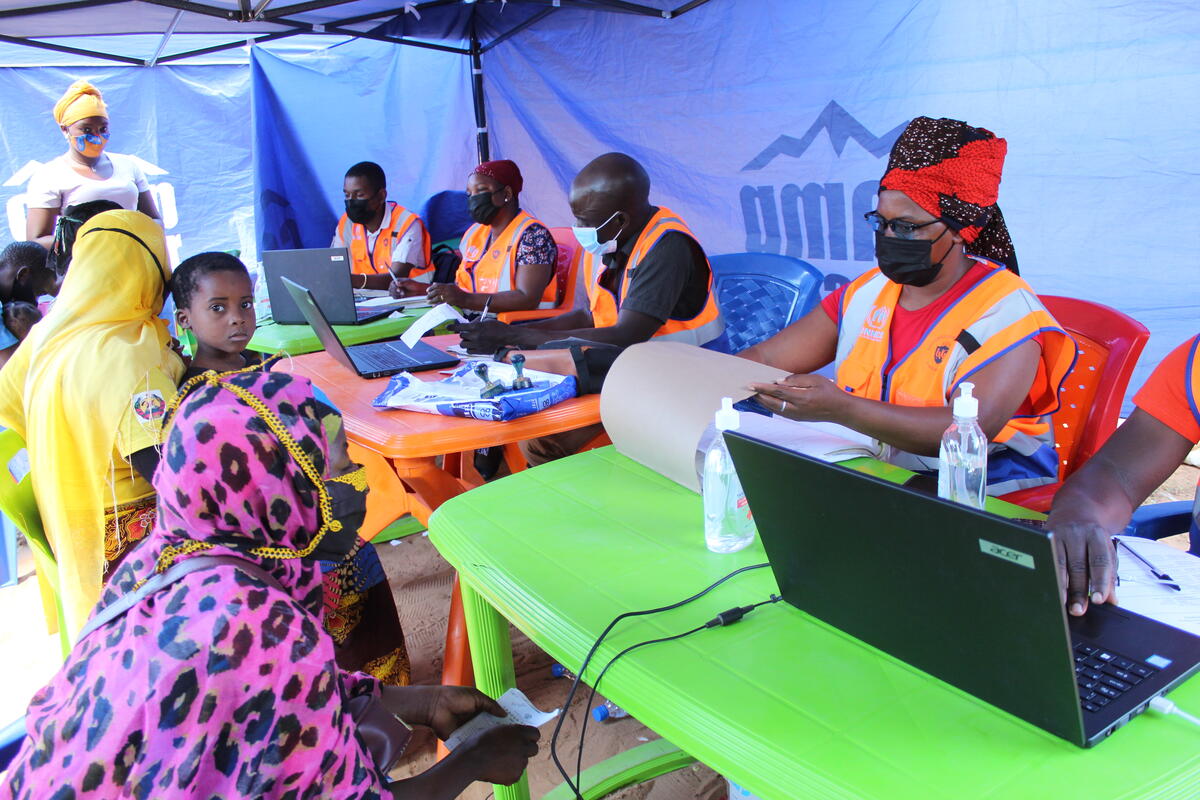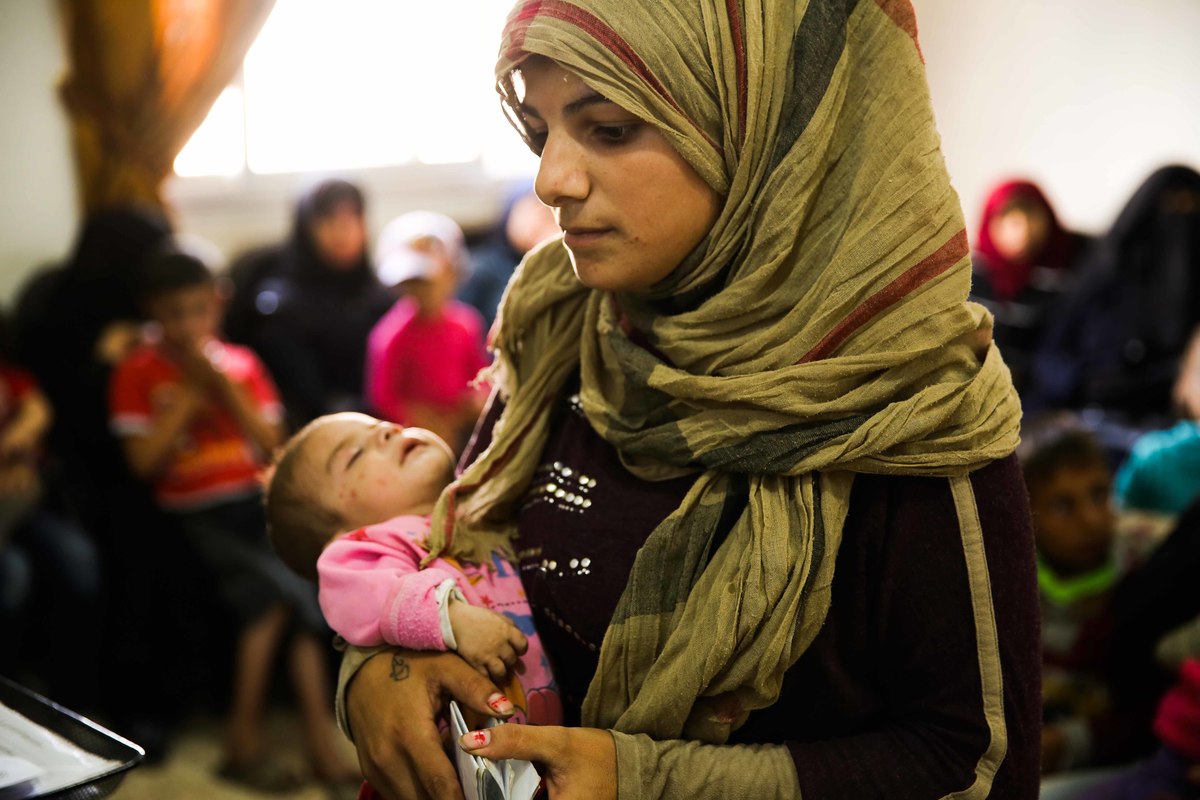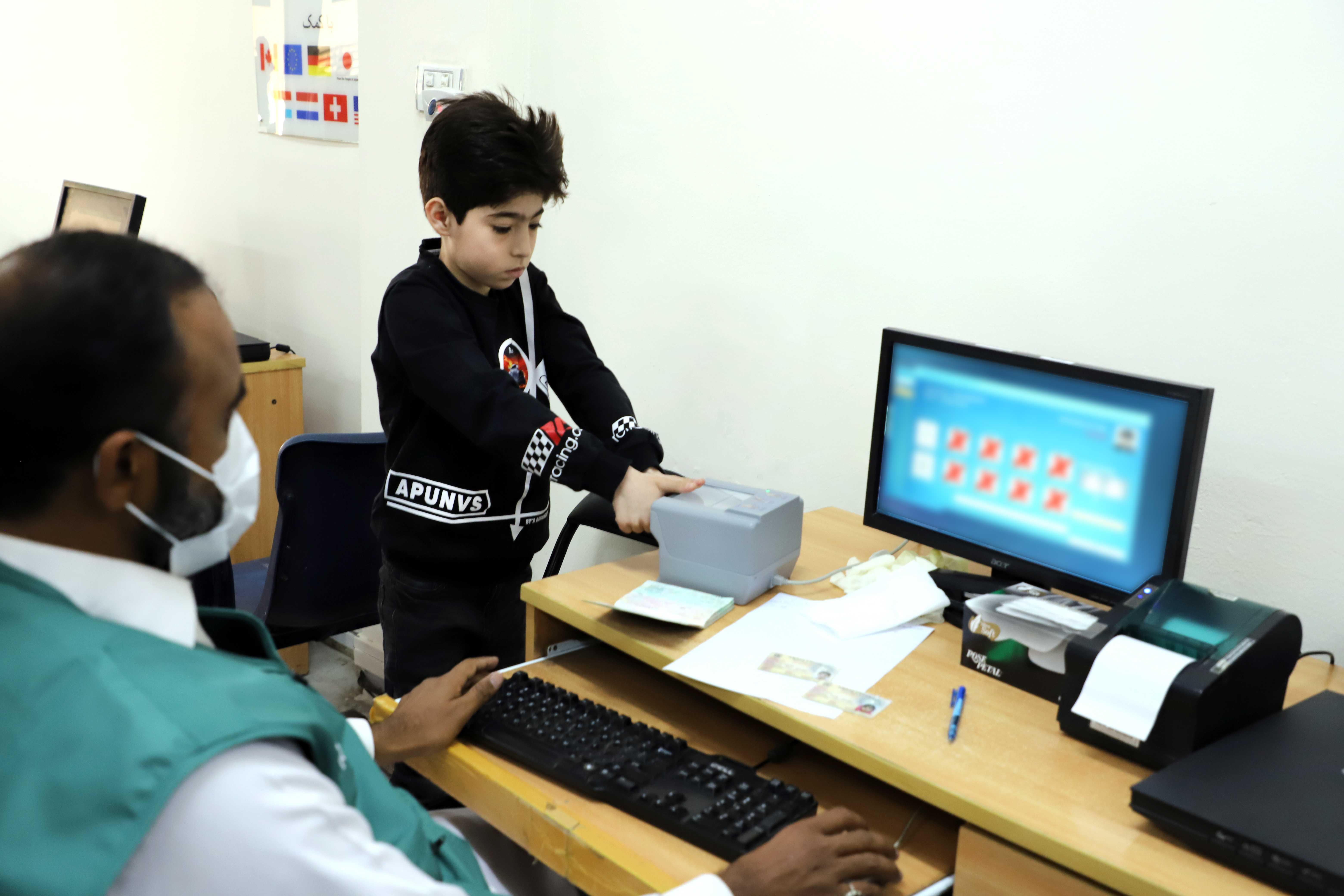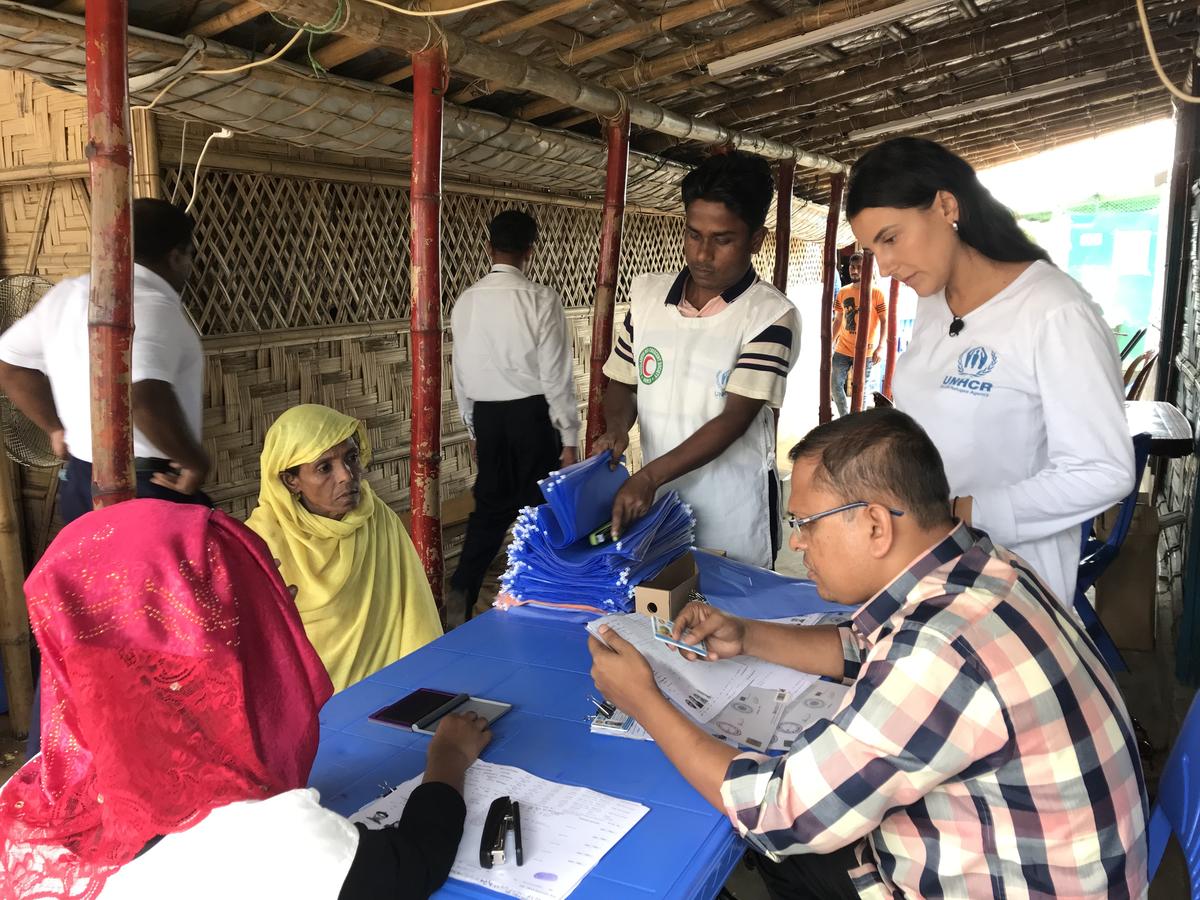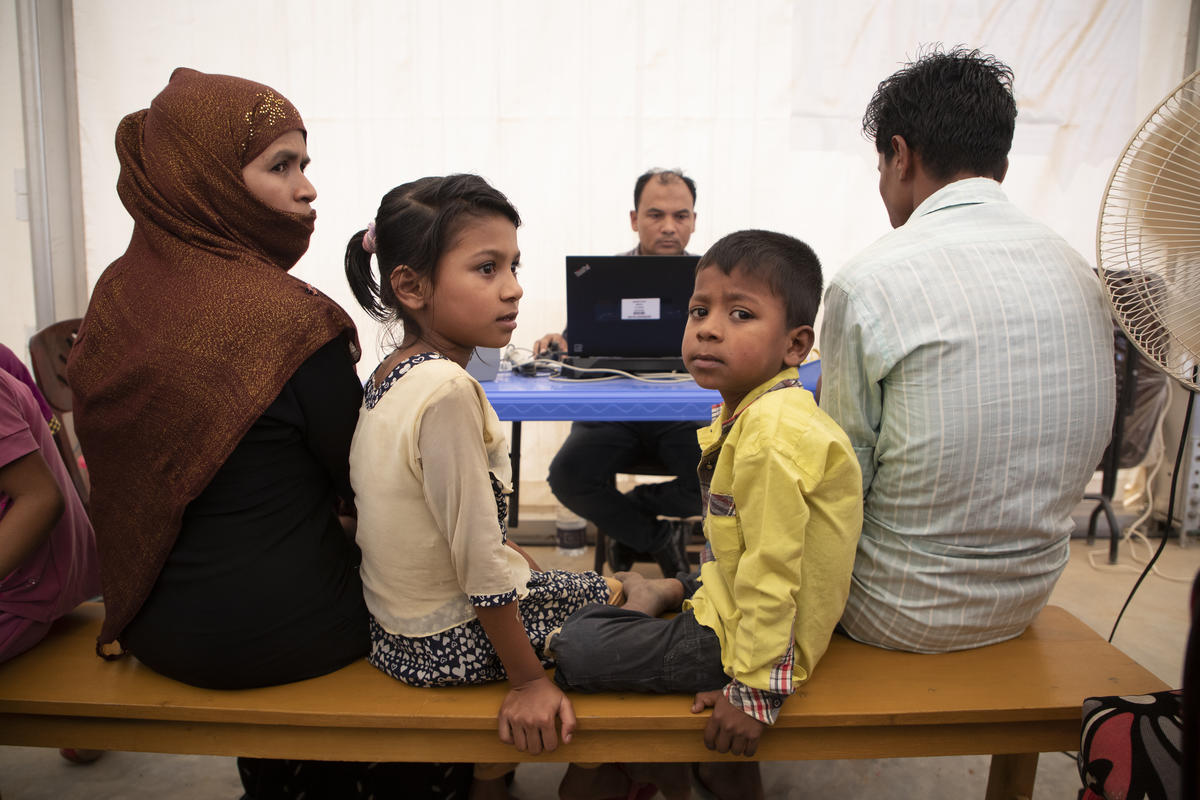Q&A: Refugee registration takes UNHCR official across southern Africa
Q&A: Refugee registration takes UNHCR official across southern Africa

PRETORIA, South Africa, March 30 (UNHCR) - Andrew Hopkins, UNHCR's Senior Regional Global Registration Officer for southern Africa, is based in Pretoria but spends most of his time on missions to help register and document refugees and asylum seekers throughout the region. Last year he helped with a registration in Zimbabwe and later this year he plans to organise registrations in Angola and Zambia. Hopkins, who recently discussed his work with Senior Public Information Officer Jack Redden, is just completing a registration in Namibia, where more than 7,000 refugees and asylum seekers will be receiving sophisticated identification cards. Excerpts from the interview:
What is the role of a registration officer?
The job is primarily to support the registration and documentation of asylum seekers and refugees. But it's much more than just numbers. You can't serve a population if you don't know who they are, and registration is the first step toward that. All protection interventions stem from getting the people on our books - knowing who people are individually makes all the difference between being able to provide assistance or not.
Registration and data management can help you do a plethora of good acts for the population we're dealing with. Sometimes you get staff doing registration with strongly technical backgrounds or you have people with protection backgrounds. If you can marry the two, the output for assisting people is very, very strong.
What information is collected?
UNHCR stipulates a number of standards we have to meet in registering refugees: they include - on an individual basis - name, date of birth, country of origin, country of asylum, date of arrival, sex, religion, ethnicity, education level, occupational skills and many more. A photograph is very important for attaching an identity and verifying the record. You need addresses, both in the country of origin and country of asylum - if you repatriate someone you know where to send them, in the camp or in an urban context you know where to find someone to provide assistance.
You seem to emphasise individuals?
I can't stress enough the importance of individual registration for serving the population. It's important not to cut corners with regard to collection of information. If I'm registering a 12-year-old, then I talk to the 12-year-old, I don't turn to the mother and ask for his or her name. If you eyeball everyone who comes in front of you with a mind to protect them and assist them, then you're using registration as a very strong protection tool.
How do you use the information you've collected?
When people approach UNHCR we can know their history pretty quickly, we can know where they've been, we can know if they've collected food rations or if they've missed the rations.... And that works in favour of the refugee. If we know their special needs, for example, then we know that follow up is required. It helps us do our work and it also helps refugees and asylum seekers to access UNHCR services much better.
How does registration fit into UNHCR's search for durable solutions?
Good registration is essential to initiate any durable solution process. For example, linkages between registration and local integration are very strong. If you look at Namibia, we now have skills information that will be useful to the government in making determinations about who might be eligible for some further support in local integration. In Angola, we have a long-standing group of Congolese who haven't been registered effectively. The government has demonstrated a strong willingness to provide permanent residency, yet because the refugees are not properly registered we can't effectively make that second step into providing the permanent residency card.
Do refugees receive a document from the process?
The Namibia registration falls directly in line with the standards we are looking for globally. We're ensuring that everyone gets a very recognisable document issued by a department of the government rather than just a temporary card from UNHCR. We teamed up with the Ministry of Home Affairs and Immigration and we've basically piggy backed our standards onto the existing documentation systems used for their nationals, for which they have a marvellous infrastructure.
The refugees are absolutely elated to finally be getting individual documentation. The reaction from the women's groups was particularly strong because they no longer have to be tied to their husbands to be recognised for who they are. We are talking about individual recognition through individual documentation.
What benefits do refugees gain from receiving individual documents?
There is a very direct result. Refugees and asylum seekers can access services and protection by virtue of being registered and documented. If one gets stopped on the street by a police officer, he can look at the document and say: "Okay, you fall within the protection of the government of this country or within the protection of the 1951 [UN Refugee] Convention." So freedom of movement is facilitated. Even simple things like getting remittances from banks are easier.
What happens after the registration team leaves?
We need to ensure that once these big registration exercises are done there is infrastructure in place to account for the population on an ongoing basis. Births, deaths, divorces, marriages - all those things are part of the way everybody lives and they have to be reflected in the registration records. We really have to ensure there is capacity to do the registration continually. It's done by host governments more and more, but UNHCR is still taking the lead. Frankly, our capacity is just not there on the ground and the only way we're going to institutionalise good registration and documentation practices is by bringing the government on board and building their capacity on an ongoing basis.


